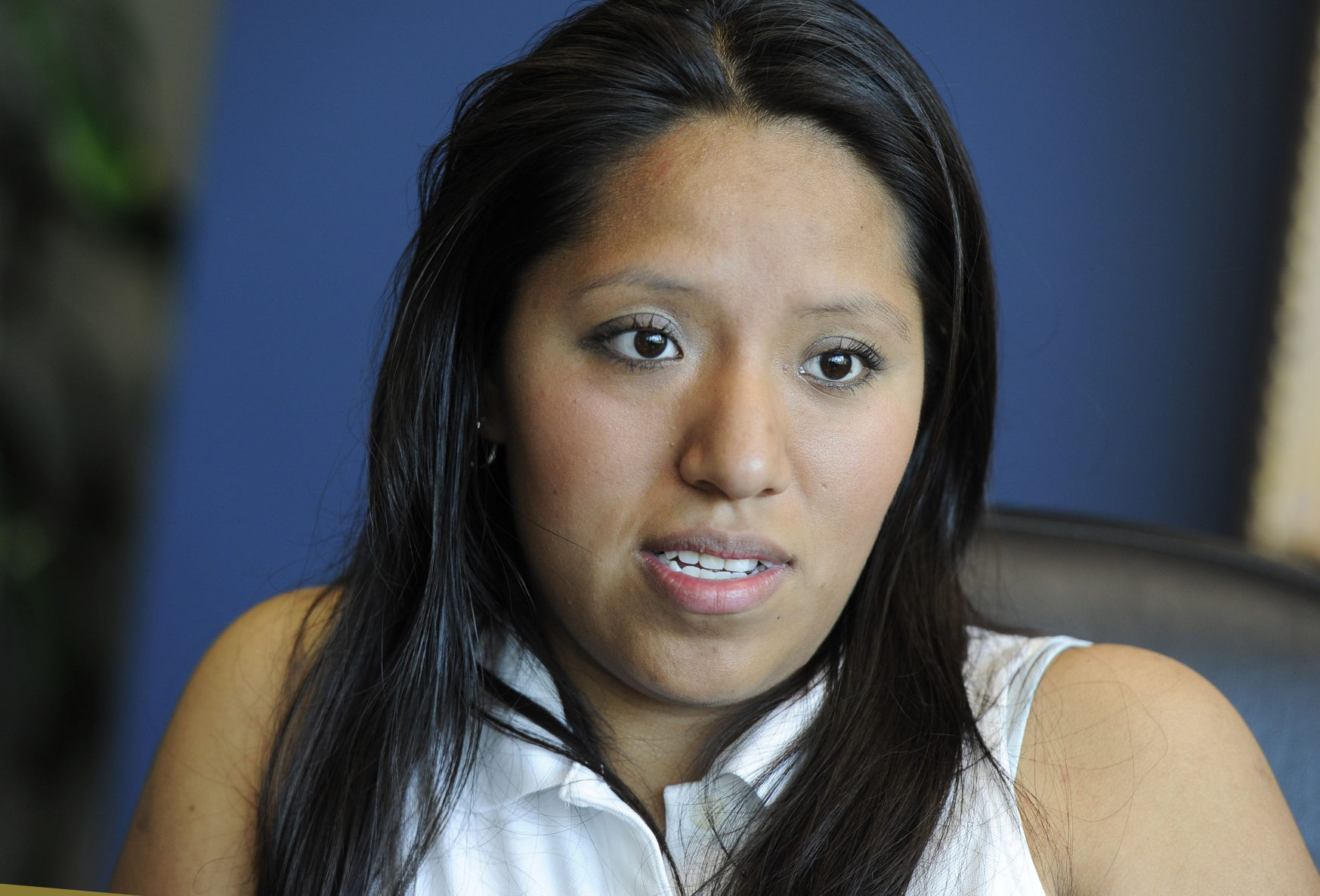ATLANTA (AP) — A Mexican woman whose case grabbed national headlines when she was a Georgia college student seven years ago could lose her protection from deportation for a second time this year.
Immigration authorities re-evaluated 29-year-old Jessica Colotl’s protection under the Deferred Action for Childhood Arrivals program and decided not to renew it, federal government lawyers wrote in a court filing Wednesday.
The DACA program, which was created by the Obama administration in 2012, offers a reprieve from deportation to people in the country illegally who can prove they arrived before they were 16, have been in the U.S. for several years and have not committed a crime since arriving. It also allows them to work legally.
President Donald Trump last month announced an end to the program. But he said those whose authorizations were set to expire within six months could apply for renewals as long as they did so by Oct. 5.
The government previously revoked Colotl’s DACA status in May, and a government lawyer the next day filed a new request for a deportation order, citing the termination of her DACA status.
Her lawyers argued at the time that the government terminated her protected status illegally — without notice, without due process and without a reasoned explanation. They filed a challenge in federal court in Atlanta.
U.S. District Judge Mark Cohen in June wrote that it appeared the government had failed to follow its own procedures when it revoked Colotl’s DACA status and declined her application for renewal.
He instructed federal authorities to reconsider the termination of Colotl’s DACA status and her application for renewal. He ordered that her protected status, including authorization to work in the U.S., be restored while that reconsideration was pending.
Cohen said his order would remain in place until he is satisfied that the government has “followed all relevant standard operating procedures” regarding the processing of Colotl’s renewal application and any termination of her DACA status.
Immigration authorities reinstated her status and reopened her renewal application, Wednesday’s court filing says. They provided her with a notice of intent to deny her renewal request on Aug. 18 and considered her response before deciding Monday to deny her request, the filing says.
The government has therefore addressed the concerns raised by Colotl’s lawyers about the May termination of her protected status and followed the proper procedure, so the case should be dismissed, government lawyers argue.
Charles Kuck, a lawyer for Colotl, said the government still has not given a valid reason for denying her the protected status, that the program was designed precisely for people like her.
“We’re very disappointed that the immigration service continues to play with this young woman’s life,” Kuck said by phone Wednesday. “We will once again see them in court over this.”
Colotl, now 29, was brought to the U.S. illegally by her parents when she was 11. She became a flashpoint in the national debate over immigration reform in 2010 after she was pulled over on a traffic charge on the campus of Kennesaw State University, near Atlanta. She was arrested and turned over to federal immigration authorities who kept her in a detention center for 37 days.
Her case drew national attention after her sorority sisters held posters with her name on them during a march for immigration reform in Atlanta while she was detained.
She has since graduated from college and first applied for DACA in 2012. Her application was granted in 2013 and was renewed. She has been working as a paralegal in Kuck’s firm and has said she wants to go to law school and to become an immigration lawyer.


